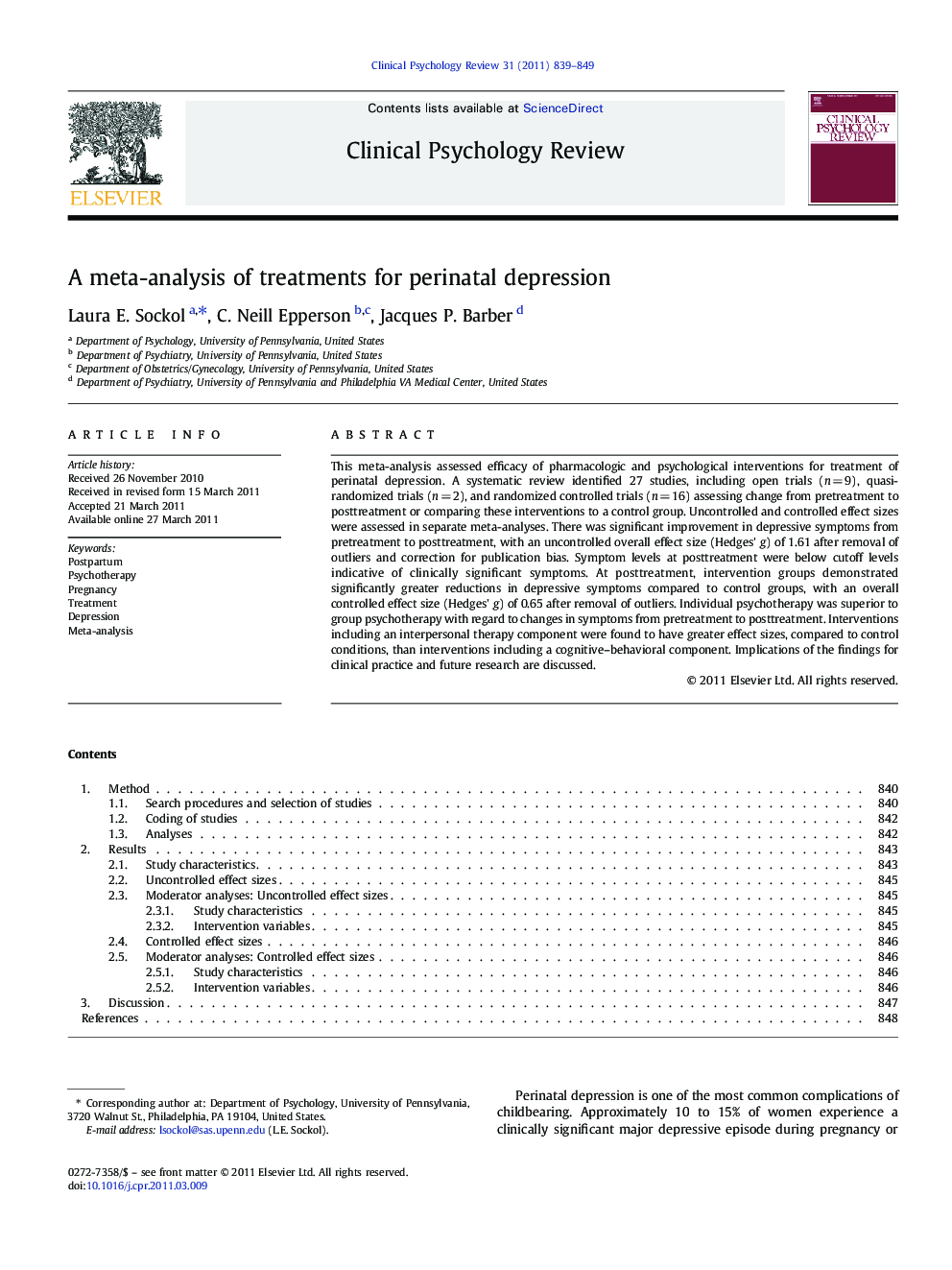| Article ID | Journal | Published Year | Pages | File Type |
|---|---|---|---|---|
| 903780 | Clinical Psychology Review | 2011 | 11 Pages |
This meta-analysis assessed efficacy of pharmacologic and psychological interventions for treatment of perinatal depression. A systematic review identified 27 studies, including open trials (n = 9), quasi-randomized trials (n = 2), and randomized controlled trials (n = 16) assessing change from pretreatment to posttreatment or comparing these interventions to a control group. Uncontrolled and controlled effect sizes were assessed in separate meta-analyses. There was significant improvement in depressive symptoms from pretreatment to posttreatment, with an uncontrolled overall effect size (Hedges' g) of 1.61 after removal of outliers and correction for publication bias. Symptom levels at posttreatment were below cutoff levels indicative of clinically significant symptoms. At posttreatment, intervention groups demonstrated significantly greater reductions in depressive symptoms compared to control groups, with an overall controlled effect size (Hedges' g) of 0.65 after removal of outliers. Individual psychotherapy was superior to group psychotherapy with regard to changes in symptoms from pretreatment to posttreatment. Interventions including an interpersonal therapy component were found to have greater effect sizes, compared to control conditions, than interventions including a cognitive–behavioral component. Implications of the findings for clinical practice and future research are discussed.
Research Highlights► Perinatal depression is common and can have lasting effects on child development. ► Psychotherapy and antidepressant medications reduce perinatal depressive symptoms. ► Further methodologically rigorous studies of interventions are necessary.
